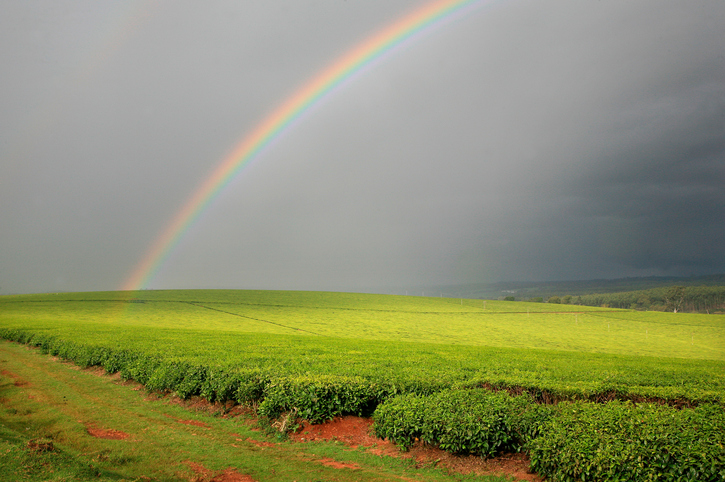What to know, the education sessions to attend and some booths to visit at World Tea Expo to get the full view of what’s happening with Kenyan tea today.

Promoting Purple Tea
In more recent years, purple tea emerged in the tea industry as a niche specialty tea, but few people are familiar with its origins and benefits. Purple tea is derived from a new crossbred cultivar of Camellia sinensis developed about six years ago in Kenya. It is grown at high elevations of between 4,500 and 7,500 feet, where cooler temperatures help the tea plants to withstand the strong, direct ultraviolet light that causes the plants to produce higher levels of anthocyanins and polyphenols than those of other teas, according to Maypro Industries, a global supplier of nutraceutical ingredients. Like green tea, purple tea also contains epigallocatechin gallate. It is processed in the orthodox method. North America is the top export destination for purple tea; in 2017, U.S. and Canadian wholesalers imported approximately 10 metric tons, reported World Tea News in Purple Tea Ready for Prime Time.Taking Care of People
Sustainability and human rights are taken seriously across Kenya's tea industry, from small tea farms to large corporate plantations. Fred Kong’ong’o, market linkage specialist for USAID’s East Africa Trade and Investment Hub in Nairobi, Kenya said, “In terms of human rights, I think everybody in the supply chain is taken care of.” Most Kenyan black tea is produced by small-scale farmers. The farmers have formed their own cooperatives and groups and run their own processing factories. Kong’ong’o went on to state, the larger plantations that are owned by multinational corporations are Rainforest Alliance Certified and have collective bargaining agreements for workers and allow workers to have their own union. Processing facilities have British quality standards certification and also adhere to local standards.Touting Terroir—The Story of Place
Kong’ong’o commented on how climate change has caused erratic weather in the last 10 to 15 years and can affect the quality of the tea leaves. There have been droughts as well as onslaughts of pouring rain. However, he is optimistic about this year’s harvests because “the rains have been good” and said the quality and quantity of the tea leaves is going to be very high, especially between now and August. “One thing which makes the Kenyan tea unique is the sunshine,” said Kong’ong’o, who added that most of the tea is grown along the Equator and in the Great Rift Valley, so the quality of the soil and the sunshine make the flavor profile of Kenyan tea to be very unique. The volcanic soil in the Great Rift Valley and the 365 days of sunshine make Kenyan tea rich in taste and nutrients. Currently, most Kenyan tea is sold in bulk and used in blends. “I welcome people to taste the original Kenyan tea without blending it,” Kong’ong’o said. Kenyan tea purveyors want to sell their teas in the United States market as single origin teas so people can taste the authentic flavor of Kenyan tea by itself. People will have the chance to taste Kenyan tea at the World Tea Expo, in booth 800.Dive deeper with these World Tea Expo Sessions
Origins Tasting Tour, includes Kenya, China, India, Sri Lanka and other countries, 8:30 a.m.-5:15 p.m. June 12 in rooms 231 and 232. Tea and Terroir: The Effects of Growing Environment, a PowerPoint presentation that explores the various environmental factors that create our favorite teas, 8:30 a.m.-9:40 a.m. June 12 in room 227.3 Must-see Booths at World Tea Expo
East Africa Specialty Tea, USAID’s East Africa Trade + Investment Hub, which works to increase intra-regional and global trade of agricultural commodities, will be in booth 800. Kenya Purple and Specialty Tea, The Tea Board of Kenya works to help the tea industry in Kenya and will be in booth 421. ME Corporation Ltd., is the only supplier of Moringa products that uses its own in-house farms. The company will be in booth 409.
